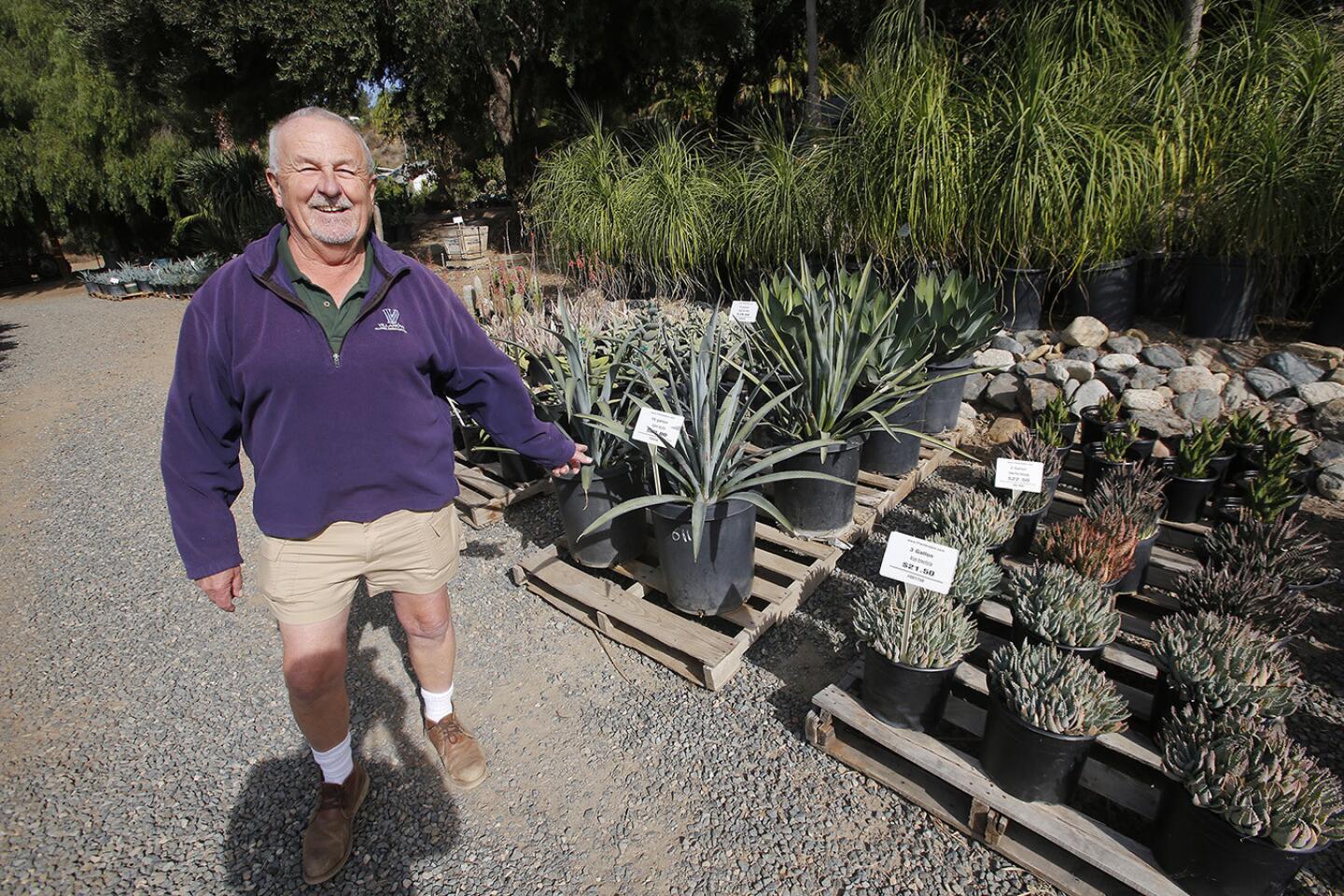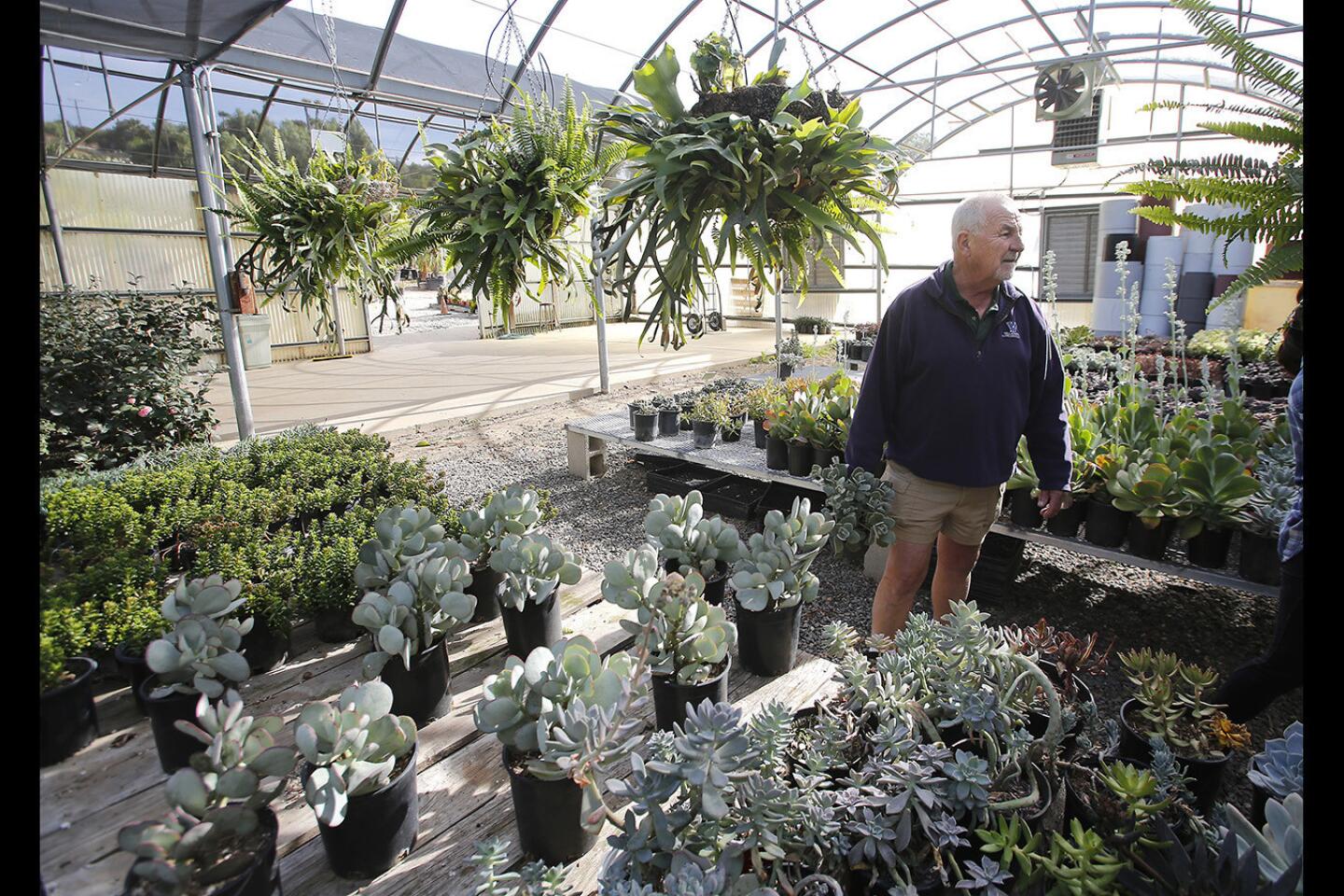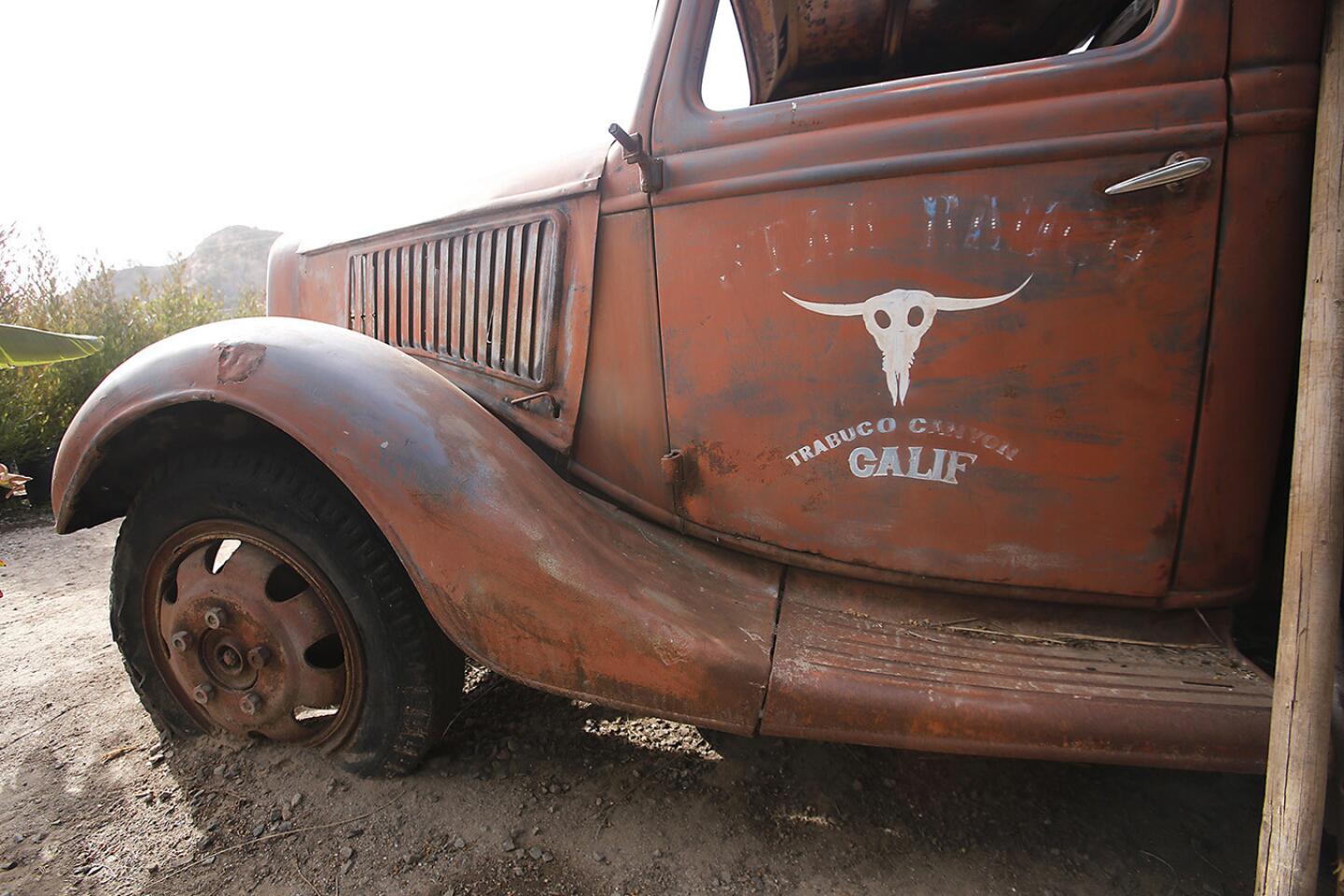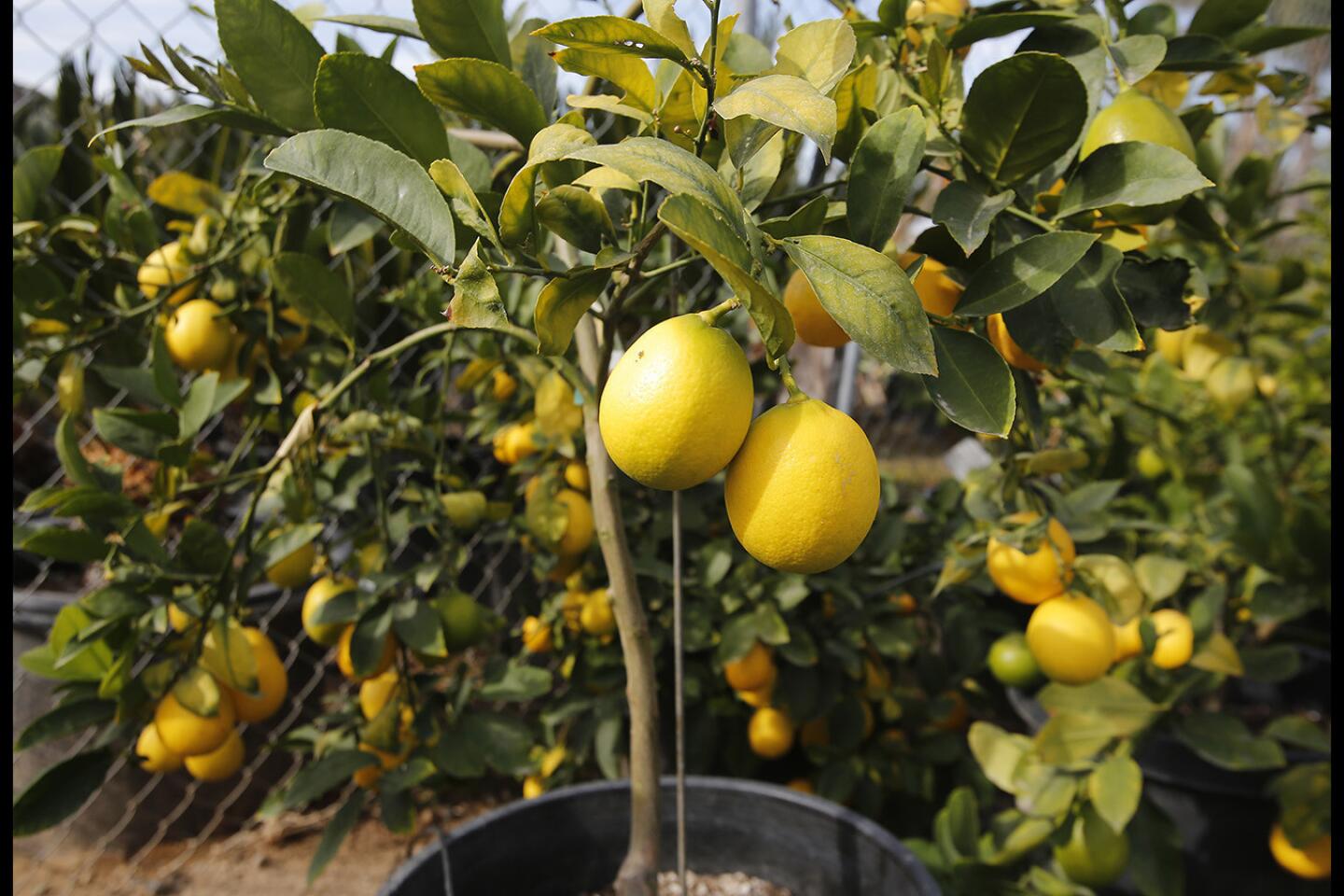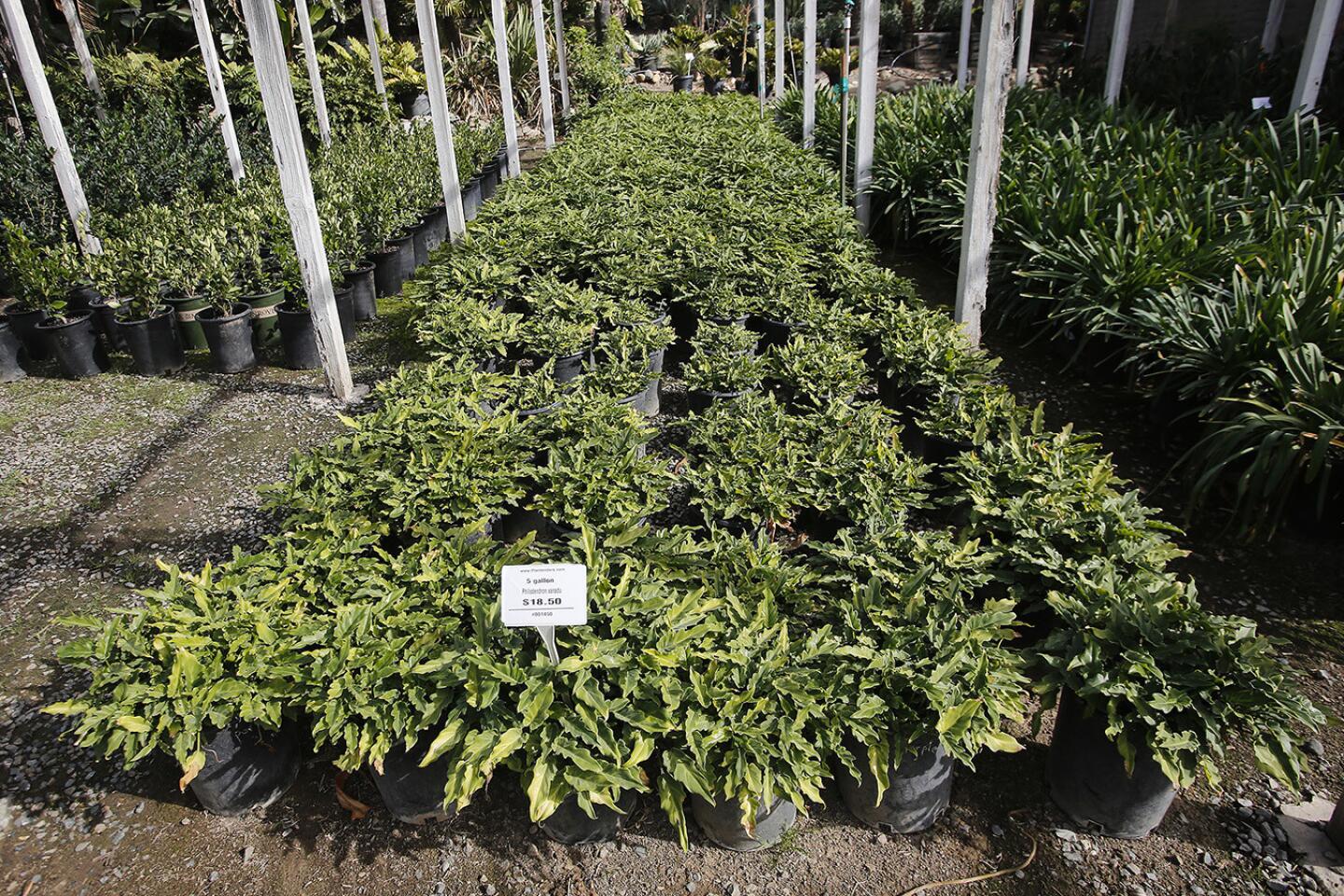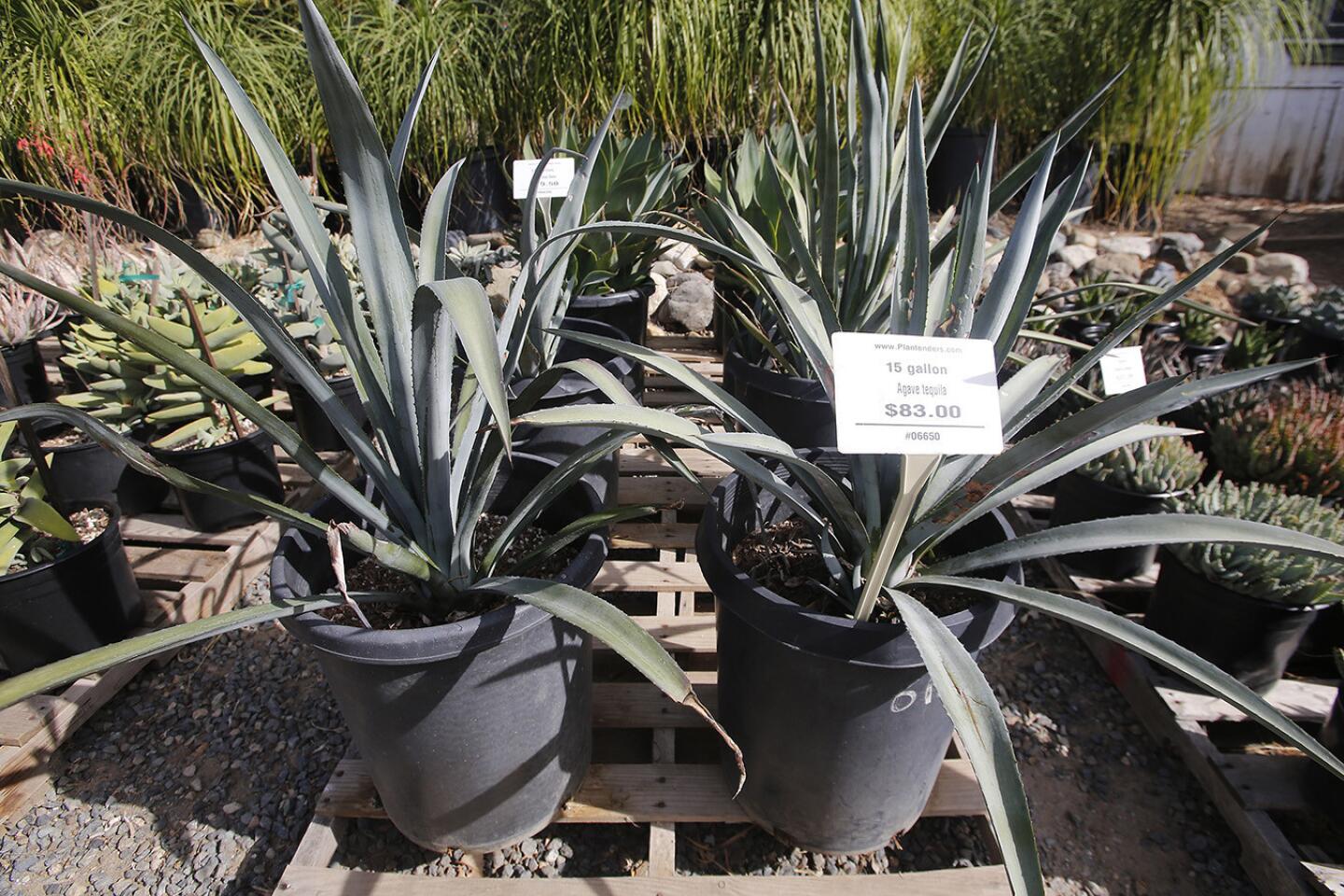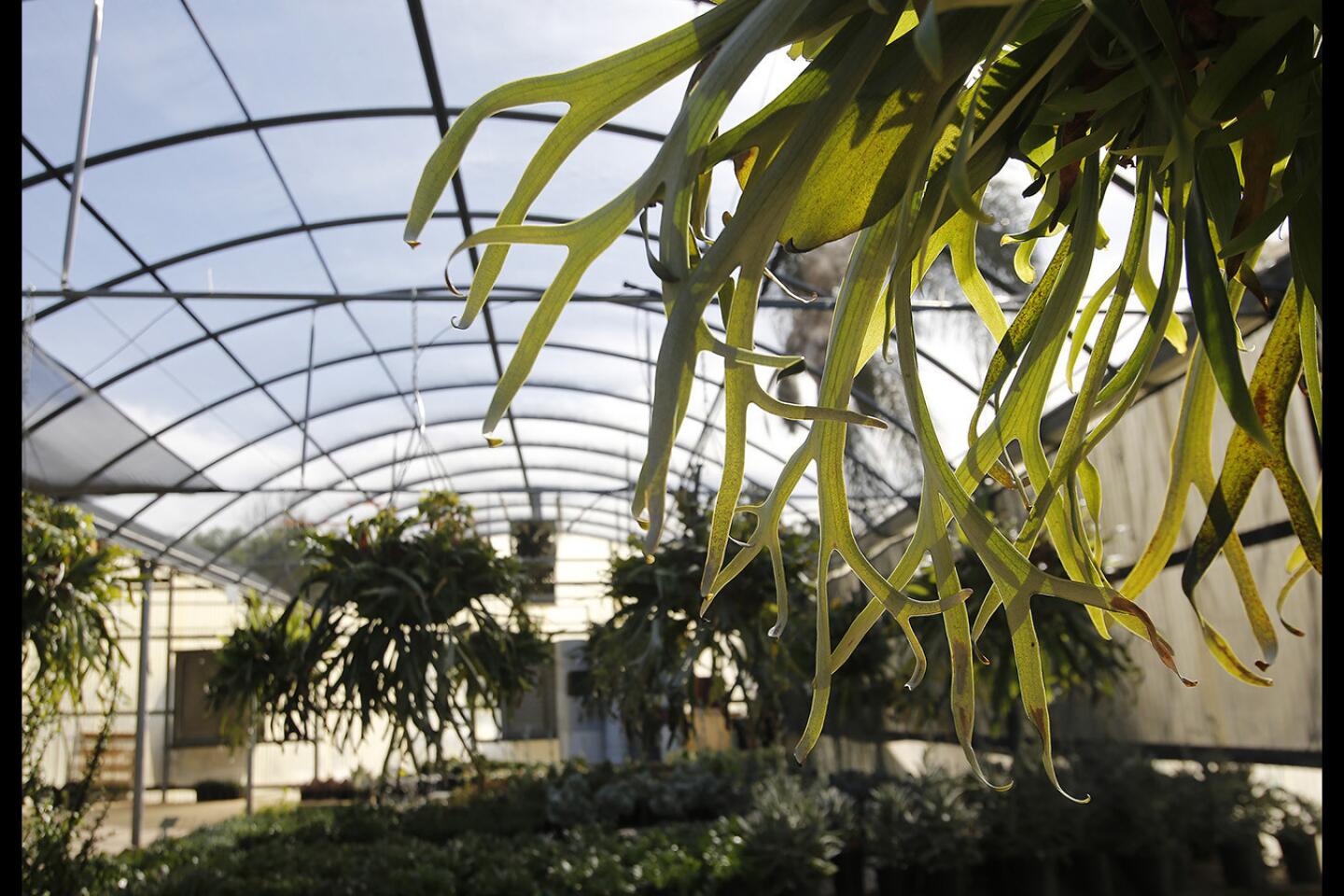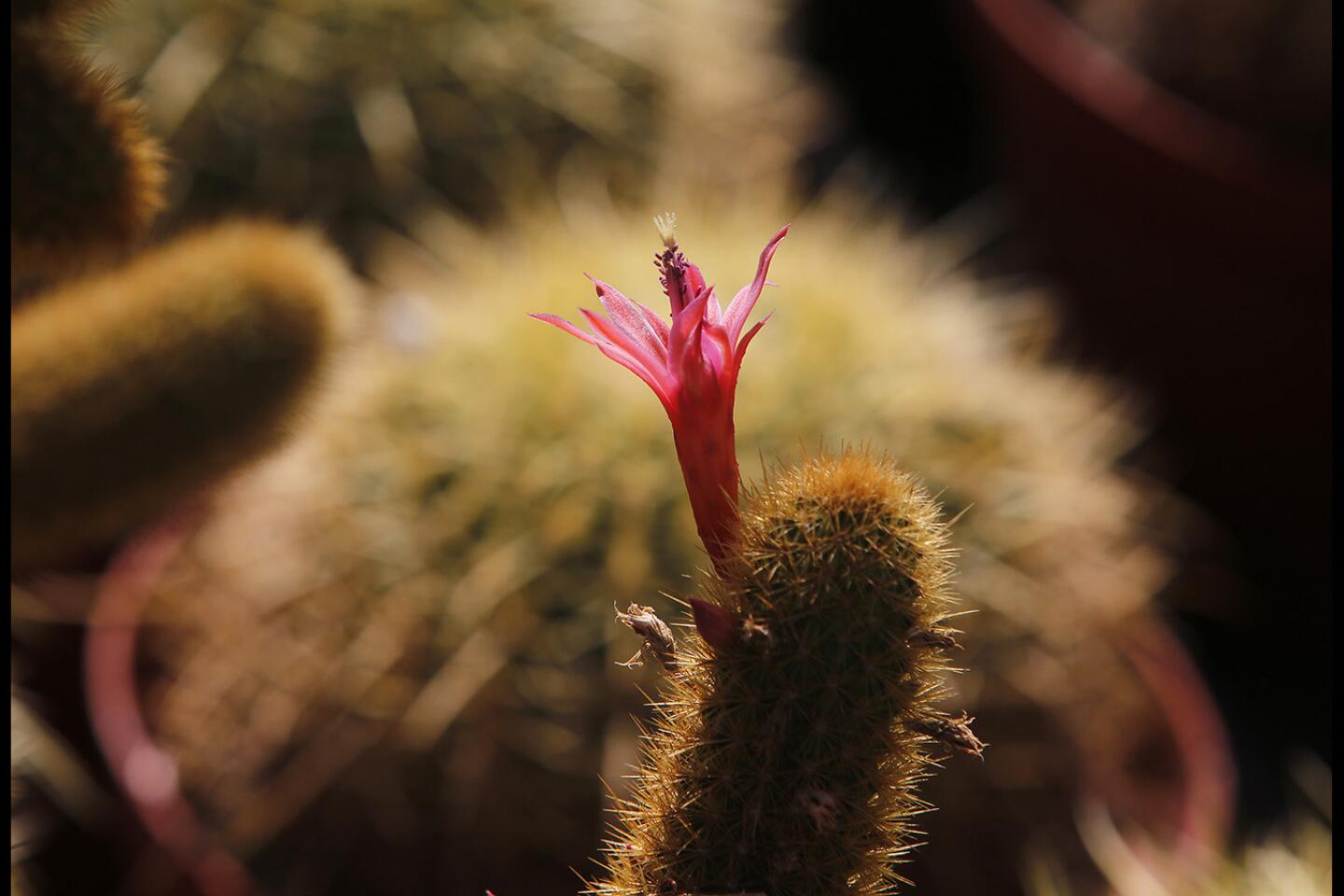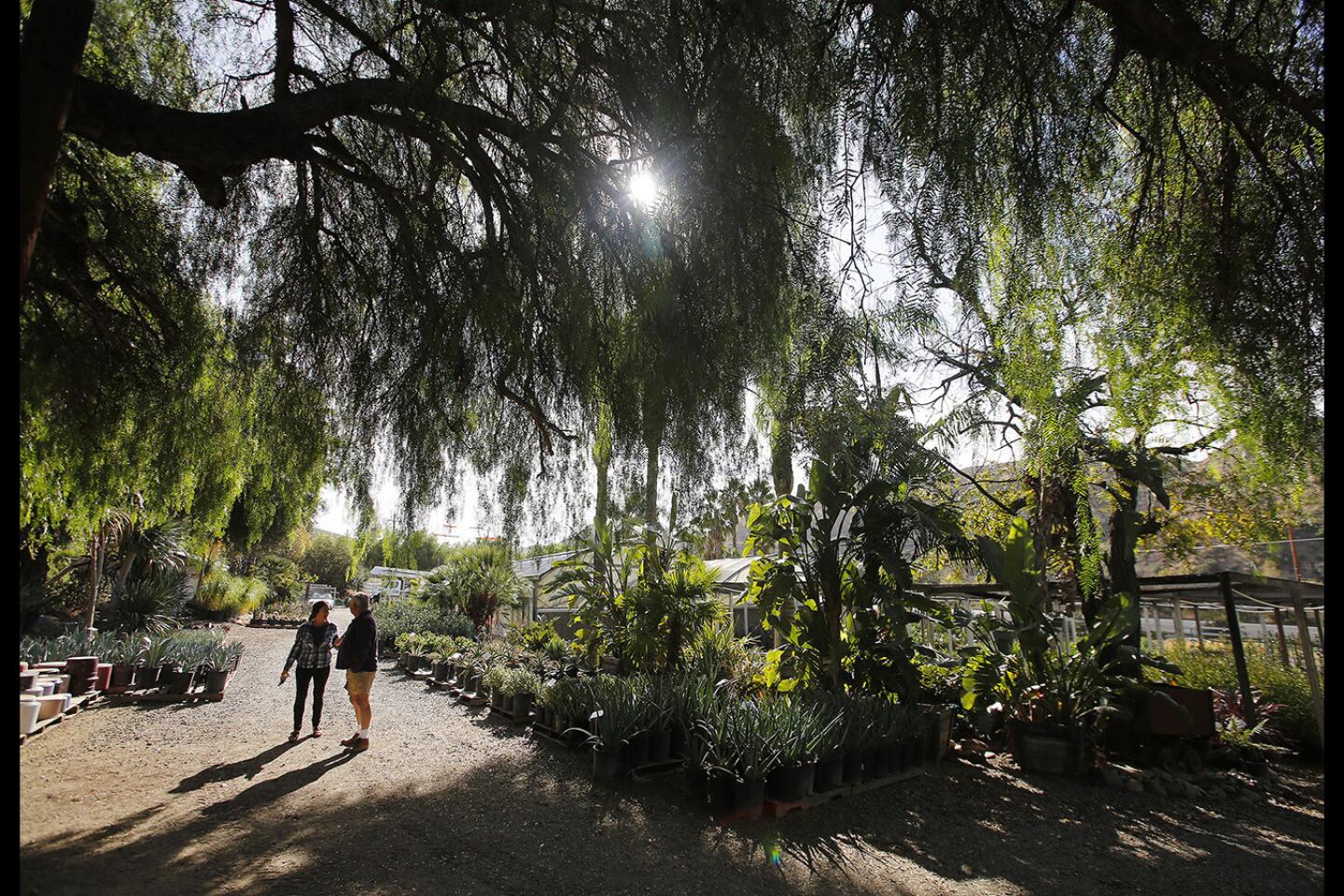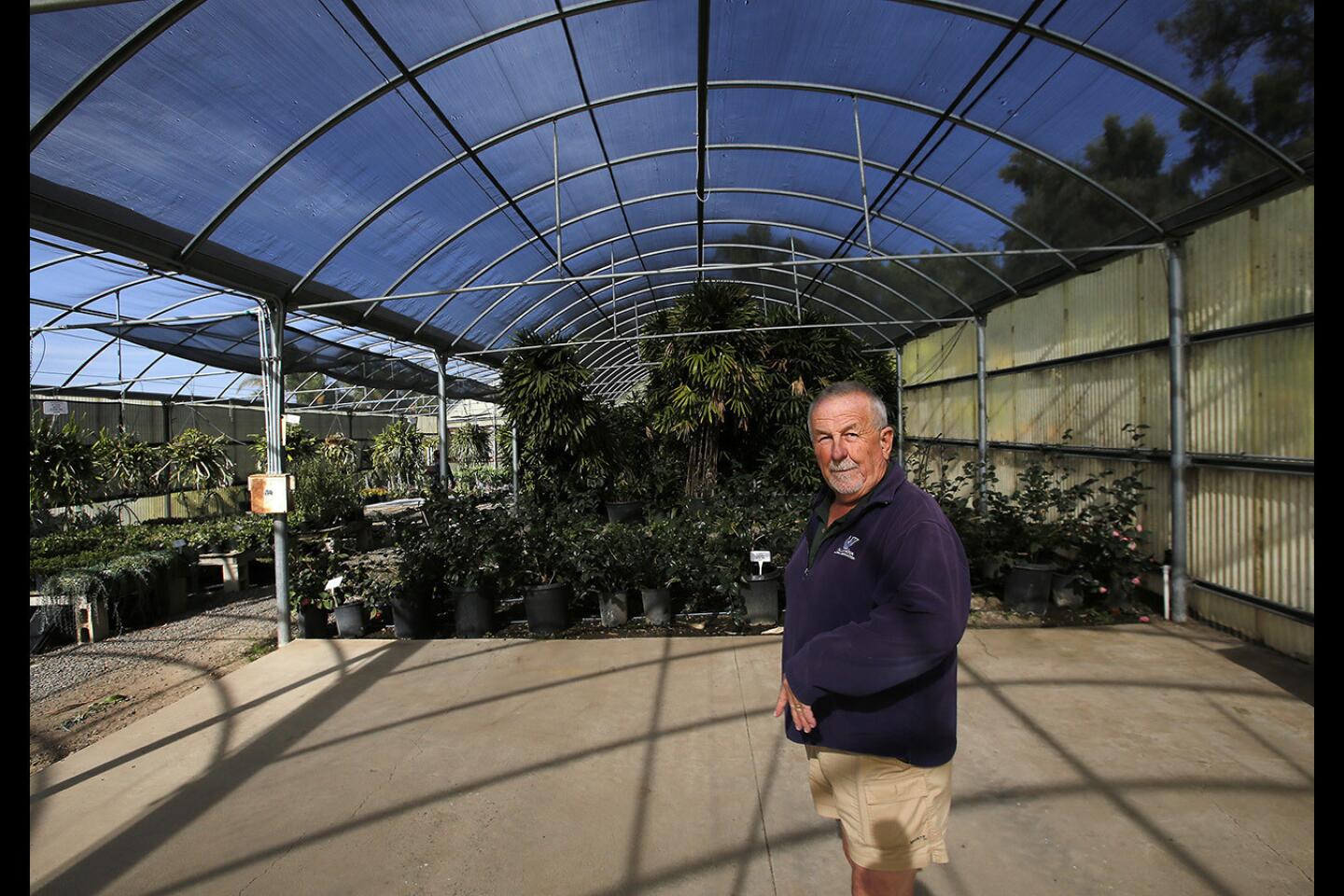Silverado Canyon nursery is dedicated to drought-tolerant plants
- Share via
If you’re finding it difficult to say goodbye to your thirsty flowers, you’re not alone.
Even Laurie Park, owner of the nursery Plantenders, “went kicking and screaming.”
But there are plenty of rewards in the world of succulents and drought-tolerant plants, he assures.
Just drive on down to sleepy Silverado Canyon, where Park’s nursery Plantenders is located, and see for yourself.
Park, who grew up in Long Beach but spent summers on a family farm in Canada, started the business in 1977, initially growing indoor plants for commercial buildings.
By the late ’80s, homeowners began hankering for all things tropical, and he switched gears.
“Everyone wanted it to look like Hawaii,” he said. “For a while palm trees were everything.”
Park packed his nursery with a panoply of palms and began billing Plantenders as a business that specialized in landscapes for backyards with swimming pools.
“At one point this whole place was full of palms,” he said, estimating he had about 750 queen palms alone.
But pricey palms turned out to be the first thing people crossed off their list when the economy started to slip about 10 years ago.
Then came the drought.
“All of a sudden, palms did not sell,” he said.
Park’s daughter Laurie Ellen Park was an attorney at the time, representing a local water district. And it was she who first sounded the alarm.
“You gotta get rid of these palms,” he recalled her telling him. “Things are gonna change and they’re gonna change real fast. Water restrictions are coming.”
Park resisted.
“I didn’t know much about succulents and drought-tolerant plants,” he said.
But he began to educate himself, and in 2008, with sales at a virtual standstill, he cried uncle, and hauled thousands of palms to the dump.
Today he has a handful of palms and some fruit trees, but 80% of his inventory is now either a succulent or a drought-tolerant plant. And business is good.
Park says it has been sad to watch fellow nursery owners who declined to adapt close up shop.
“You have to go with the times,” he said. “And honestly, I love succulents now. They have all kinds of color. You can do a lot with them. And they’re very easy.”
Plantenders caters mostly to landscapers doing big projects, but homeowners are welcome to pop by and wander the gravel paths, lined with thousands of potted-up plants in all shapes and sizes.
Park guesses he has hundreds of species from arid climates all over the planet. Some are natives, but many are from the Mediterranean, Australia, New Zealand.
The property itself is quiet with a charming old-California feel. Vintage farm machinery is scattered about, as though it just plumb ran out of gas. There’s a 1909 steel wheel Fordson tractor, a 1947 Ford 8N tractor and a 1935 Ford flatbed truck. Rusty license plates and antique tools hang here and there.
Leaning up against Park’s office, under a patch of weeping California pepper trees, their trunks gnarled with age, is a surfboard shaped by the legendary Bob “Ole” Olson. Park bought the longboard back in the ’60s, when he was 14 and Ole was just starting out with a shop in Seal Beach.
Park will help customers pick out plants if asked. And if a person calls for an appointment, he will visit the person’s yard to make suggestions. He is a contractor by trade, although he started out as a nuclear lab tech after graduating from Cal State Fullerton with a degree in biology in 1975.
From 1975 to 1985, Park was a member of the Orange County Paid Call Firefighters out of Station 18, serving as both station captain and chief. Today he lives near the nursery with his wife, Mary Ellen. And he has no regrets.
“I think it would be a pretty bleak world without plant material in your yard,” he said.
Lori Basheda is a contributor to Times Community News.
All the latest on Orange County from Orange County.
Get our free TimesOC newsletter.
You may occasionally receive promotional content from the Daily Pilot.
